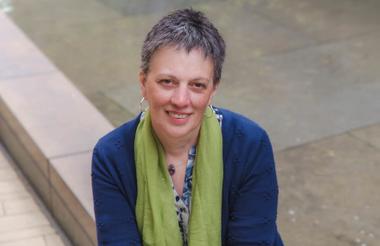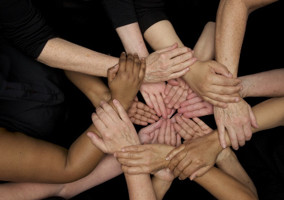Disabled leaders in charities tend to feel “pigeonholed”, the chief executive of the Association of Chief Executives of Voluntary Organisations (ACEVO) has said.
In a speech at an event this morning, Jane Ide told delegates how ACEVO has been improving diversity and shared best practices on how charities can be more inclusive.
Speaking at the annual Institute of Chartered Accountants in England and Wales’s (ICAEW) conference, Ide urged charities to tackle “systemic barriers” to an inclusive culture and to collect robust data on their staff.
‘Pigeonholed’
Ide cited ACEVO research on disability leadership in civil society, which found that disabled leaders account for 20% of the sector’s workforce.
She said the findings are “good news” but asked how many of those lead “condition-specific or disability-focused charities as opposed to, say, a children’s centre, an animal shelter or a heritage organisation”.
“Our sector can be really good at prioritising lived experience in the leadership of those specific issue organisations,” she said. “But the flip side in that is that people with different characteristics can far too often find themselves pigeonholed, or perhaps even more worryingly, they choose to stay in those organisations because that is where they feel safe.
“As a sector, we then lose out on all the strengths that they can bring in a whole range of other context. That isn’t just wrong in terms of giving equity of opportunity to all, it’s also a failure of good governance and good organisational development when you think how much better the decision making the sustainability and the impact of an organisation becomes when its senior leadership or any of this team is truly diverse and inclusive.”
She added: “If you care about your organisation’s success, why would you not want to give it the competitive edge that comes from having a truly diverse, genuinely inclusive team of people working in it?”
The importance of data
When it comes to diversity as a whole, Ide said charities should not rely on assumptions and get robust data instead.
“I can guarantee you that whatever you think you know about your organisation, there will be things you don’t know. There will be things that are hidden from you and there’ll be things that might surprise you as being better than you expect them to be,” she said.
For instance, ACEVO regularly carries out audits of the diversity of its board and 16 employees.
Ide admitted that it can be “really difficult to gather data in a small team where people feel more exposed than they would be in a much bigger organisation when they’re sharing the personal information”.
But she added that ACEVO is “very clear about why we want that information and we started out from the viewpoint that we’re setting a clear expectation of ourselves to be truly diverse and inclusive.”
‘Diversity isn’t a tick box exercise’
Ide said that “diversity isn’t a tick box exercise” whereby charities need to ensure they have sufficient staff with different characteristics.
She continued: “You can make choices about the areas you most want to focus on, the ones that matter most to your organisation to the delivery of your mission, purpose and way of working. The important thing is to have that internal debate and come to a conclusion that you can stand by and be prepared to go back and look at it again.”
However, she added that setting targets can be equally beneficial as “what gets measured gets done as a general rule”. “If those targets are grounded in a genuine commitment to wider cultural change, they can be hugely beneficial in focusing your mind and resources on making the difference where it will count the most for your organisation.”
Dealing with unconscious bias
It is crucial that the sector tackle the “systemic barriers” to an inclusive culture, she said.
“Any healthy sustainable organisation wants to retain its staff and builds this culture. If you put all your efforts into recruiting people who by definition are going to be different in some way from the majority, you have to think hard about how you adapt your organisation to help them thrive and not just survive.
“I really hope that in this day and age, no one would employ somebody who uses a wheelchair without making sure that they could get into the office or go to the loo.”
She added that as a society, “we’re still deeply unaware of the barriers that our colleagues who perhaps are neurodivergent or who have invisible disabilities face in their working environment”.
“We’re also very unaware, or perhaps sometimes deliberately blind almost, to the deeply impactful negative experiences that can be experienced every day by people who are gay or Black or in some other way in a minority in their workplace. There’s a whole conference and more to be had about systemic barriers that work against a truly inclusive culture in every organisation.
“If you’re serious about this work, you have to prepare the ground for your more diverse workforce, you have to think about your processes and how well they work for people with a variety of characteristics. You have to move from unconscious assumption to actively thinking through the barriers that you may not experience but that others will.”
Related articles












